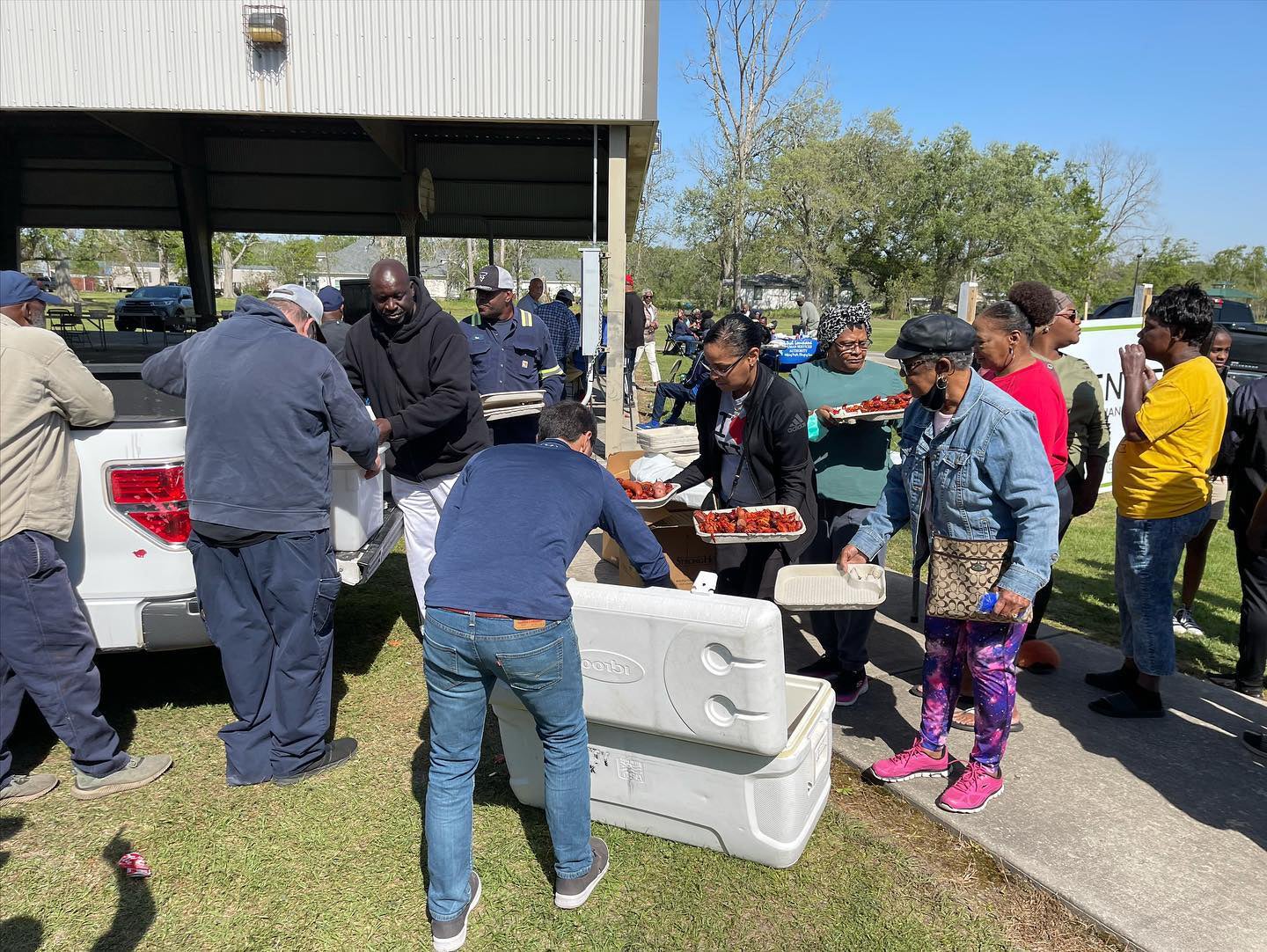Greenfield thanks community for successful crawfish boil; Company sponsors award-winning West St. John Bass Fishing Booster Club
Published 12:00 am Saturday, April 16, 2022
|
Getting your Trinity Audio player ready...
|
EDGARD – Greenfield Louisiana thanks the community for taking the time to attend their recent crawfish boil at the Juan Anthony Joseph Memorial Park in Edgard to learn more about the proposed facility in the community.
On their Facebook page, Greenfield wrote: “The first annual Greenfield Community Crawfish Boil was a huge success! Thank you so much to everyone who came out for good eats, music and dancing Friday afternoon. We look forward to hearing from and seeing everyone again at our next event!”
Enthusiasm for the project was beaming as residents were able to learn more about the project and ask any questions.
Greenfield also announced this week they are proud to sponsor the award-winning West St. John Bass Fishing Booster Club, Inc. The coach for West St. John’s high school fishing team, was in attendance at the crawfish boil to express his support.
“I am out here to help support Greenfield, because Greenfield has supported us in the community,” said Vernon Silver, coach of the West St. John’s high school fishing team. “I have lived on the West Bank for 22 years, and now in Baton Rouge. However, I still come to the West Bank just about every day. The jobs that Greenfield will provide are going to help this part of the parish in a major way. We don’t have any new jobs on the West Bank, so our residents can definitely benefit from this.”
Greenfield Exports is constructing a new state-of-the-art export grain facility located on the west bank of St. John the Baptist Parish in Wallace. The facility will receive grain primarily via barge and then export grain via oceangoing vessels and no new smokestacks will be built. The facility will not process crude oil, natural gas, or chemicals and no smokestacks will be built. The development of the Wallace Greenfield Grain Terminal property is meant to diversify the local tax base and ease the region’s energy and agricultural transition by receiving and transporting grain in a cleaner, more sustainable way while creating more than 100 direct local jobs, 500 indirect jobs and significant local and state tax revenue.







